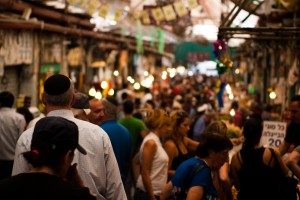Today’s “quote of the day” on www.dictionary.com touched a topic dear to my heart–Israel:
Israel is truly a land of miracles. David Ben Gurion, the main founder and first Prime Minister of the Sate of Israel, knew that first hand.
Israel was established in 1948 and was attacked by Arab armies on the same day. With only one tank, twenty-eight scout planes, and no war planes, the odds were against this newborn state. Even the experienced British Field Marshall, Bernard Montgomery, predicted that Israel would last only two weeks, and yet it miraculously survived.
Israel is smaller than New Jersey, with a population half the size of Metro New York. It is only sixty five years old, and yet…
- Israel’s scientific research institutions are ranked third in the world.
- Israel is the largest immigrant-absorbing nation in the world per capita.
- Israel has more museums, orchestras, and published books than any other nation per capita in the world.
- Israel has the largest number of start-up companies per capita in the world.
- Israel has the highest number of engineers, physicians, PhD’s, scientists, and technicians per capita in the world.
- and the list goes on…
Israel is the only nation whose people have returned to its land after 2,000 years of forced exile. It is the only nation that has revived a dead language. Israel is a fulfillment of the prophecy in Jeremiah 16:15: “The Lord lives who brought up the children of Israel from the land of the north and from all the lands where He had driven them. For I will bring them back into their land which I gave to their fathers.”






